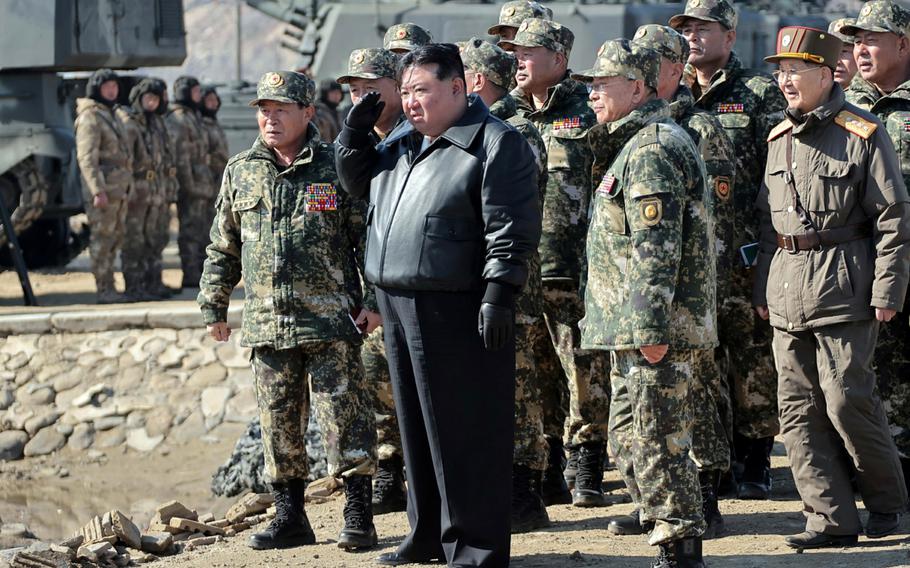
North Korean leader Kim Jong Un observes marksmanship training on March 6, 2024, in this image from the state-run Korean Central News Agency. (KCNA)
SEOUL, South Korea — North Korea launched several short-range ballistic missiles that fell into the Sea of Japan, or East Sea, on Friday afternoon, according to the South’s military.
The missiles were fired from Wonsan city, roughly 90 miles east of Pyongyang, around 3:10 p.m., South Korea’s Joint Chiefs of Staff said in a text message to news reporters.
They flew eastward nearly 190 miles before splashing down, according to the message.
The Joint Chiefs strongly condemned the launches, describing them as a “clear provocation that seriously threatens peace and stability on the Korean Peninsula.”
The launches mark the fifth day of ballistic missile testing conducted by North Korea so far this year.
The North last launched short-range ballistic missiles off its eastern coast on April 22. Those weapons flew roughly 190 miles before splashing down outside Japan’s exclusive economic zone.
Two days earlier, the state-run Korean Central News Agency said the communist regime had tested a “super-large warhead” on a cruise missile and a new anti-aircraft missile.
Friday’s launches follow a joint air exercise between U.S. Air Force F-22 Raptors and South Korean F-35A Lightning IIs over South Korean airspace.
Four F-22s assigned to the 19th and 199th Expeditionary Fighter Squadrons arrived Monday at Kunsan Air Base for training, 7th Air Force said in a news release the next day. The Hawaii-based Raptors are part of rotational squadrons taking the place of aging F-15 Eagles at Kadena Air Base, Okinawa.
An aerial drill Thursday between the U.S. and South Korean stealth fighters showcased the fifth-generation jets’ combat capabilities, the South’s Ministry of National Defense said in a statement that day. Pilots alternated between offensive and defensive scenarios.